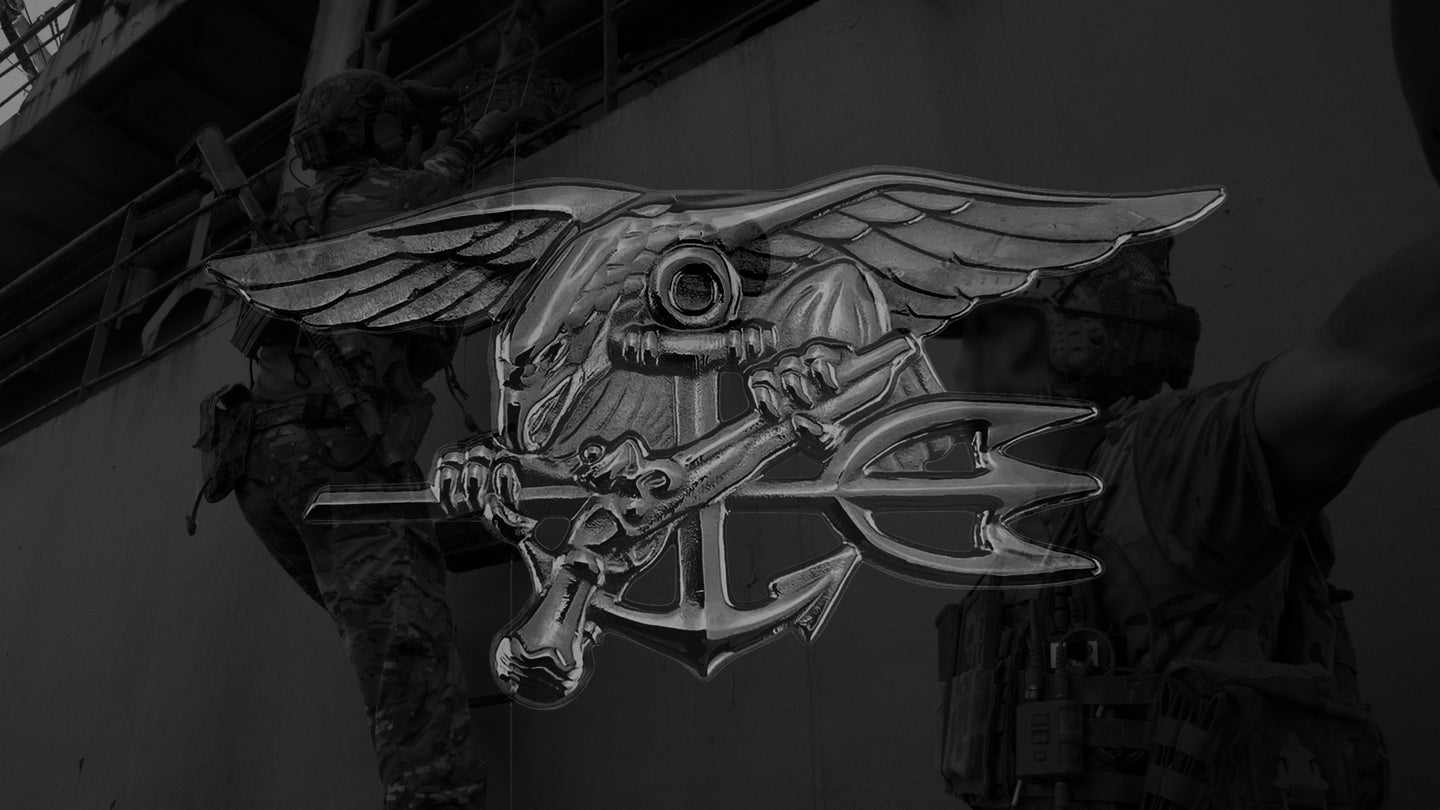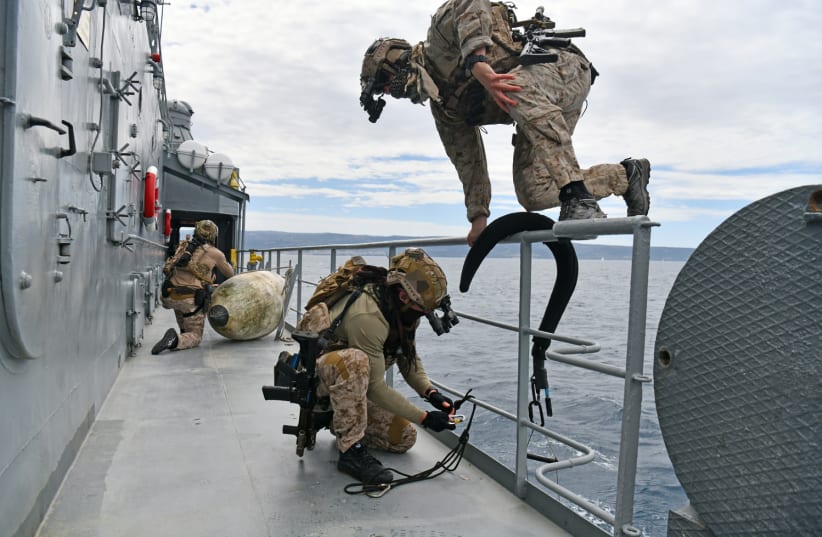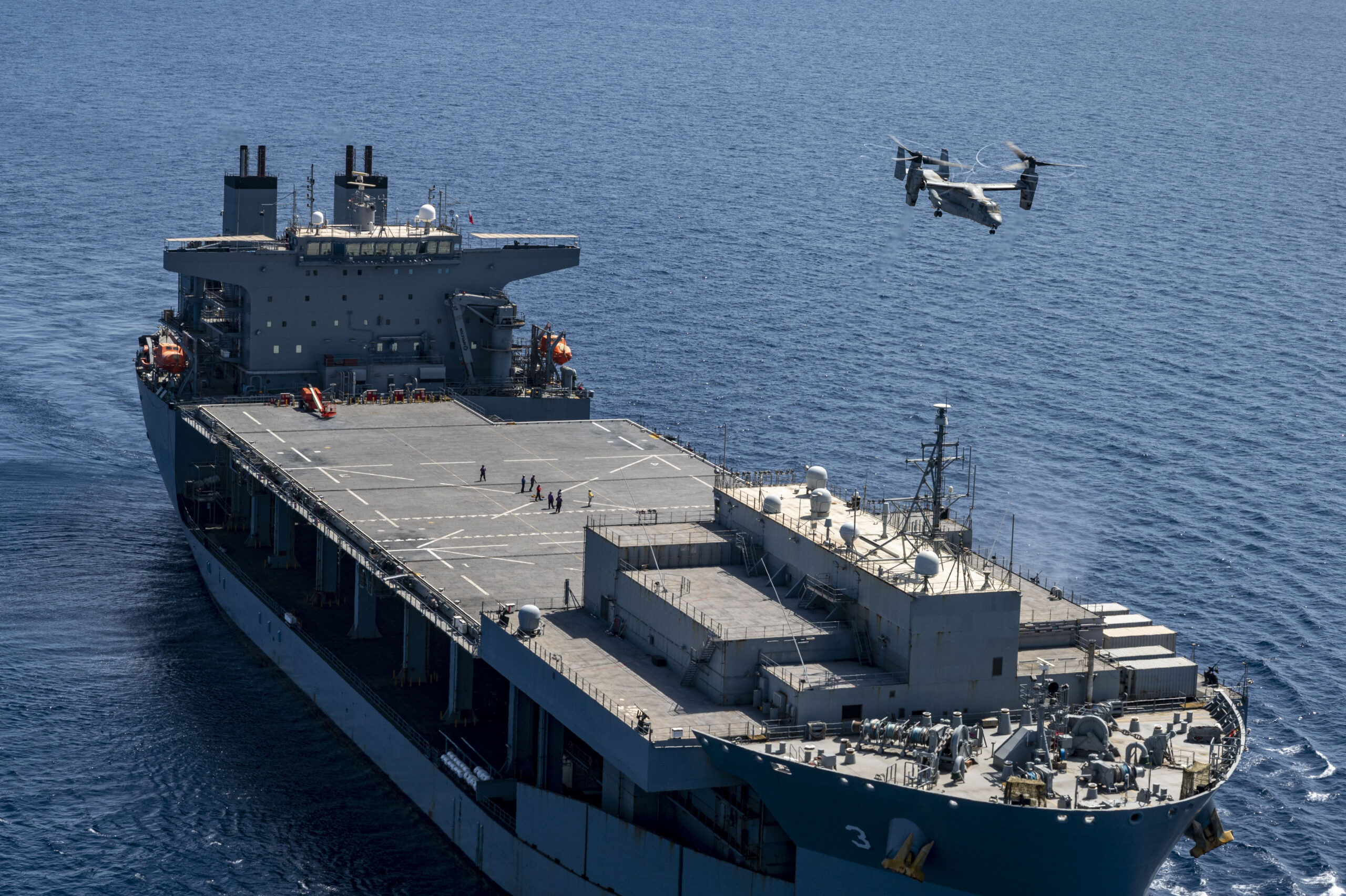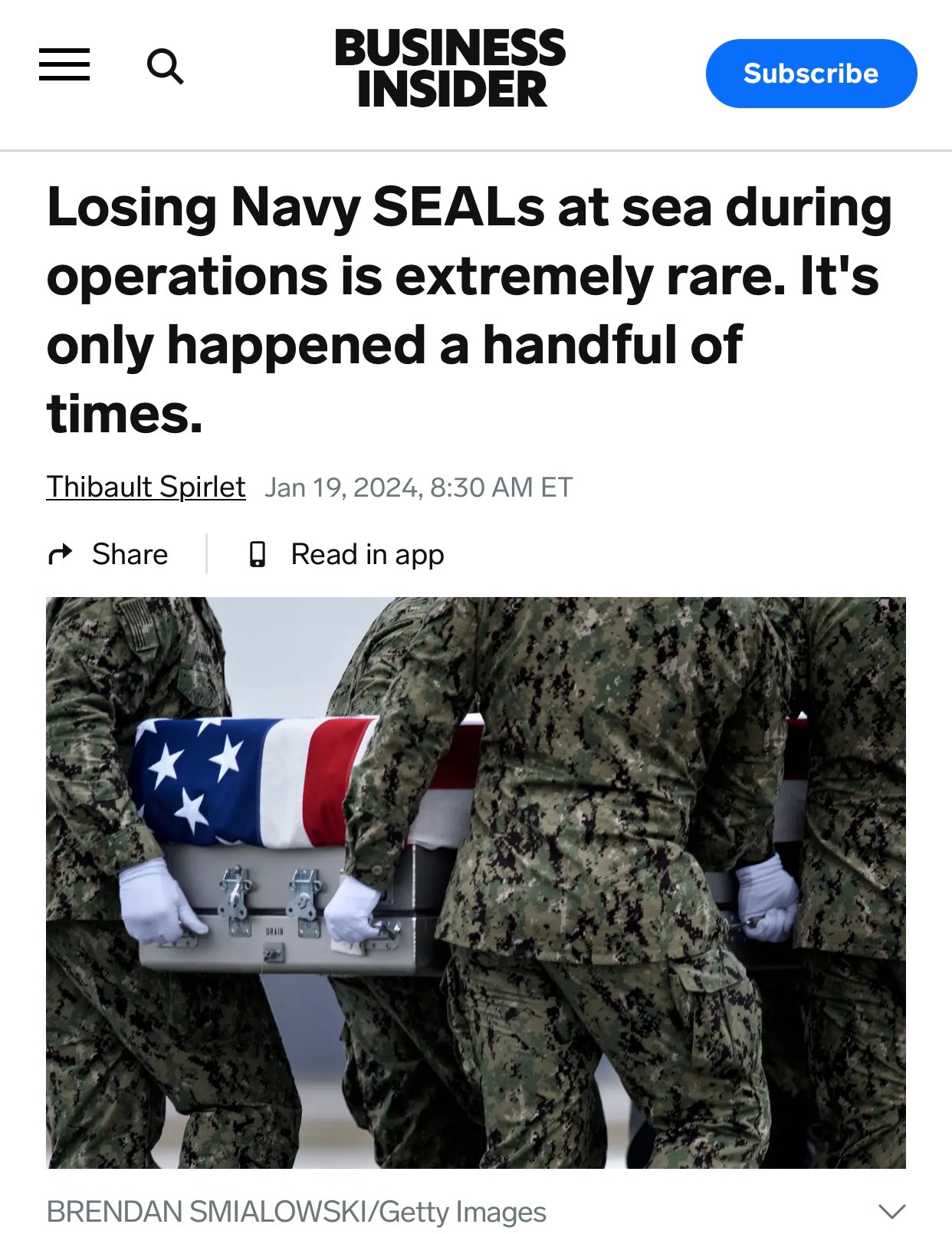“We regret to announce that after a 10-day exhaustive search, our two missing U.S. Navy SEALs have not been located and their status has been changed to deceased,” CENTCOM said in its statement.
- Both SEALs were part of a team of Navy special operators who conducted a nighttime boarding mission of a dhow near the Somali coast that was transporting weapons from Iran to the Houthis as part of their attacks on merchant shipping, according to U.S. Central Command.
- The SEALs found parts for medium-range ballistic missiles and anti-ship crew missiles and the dhow was sunk after the mission.
- One of the SEALs was knocked into the water by high waves while trying to climb into the dhow, and the other jumped into the ocean to rescue him, according to media reports.
- The ship is a modified Alaska-class oil tanker that was built specifically as a floating sea base for U.S. troops.
- It features a four-spot flight deck, mission deck, and hangar for aviation support; equipment staging support; berthing; and command and control.
- The tactic is officially known as Visit, Board, Search and Seizure, or VBSS.
- SEALs must brave rough seas as they exit their delivery boat and climb a rope ladder to board the other vessel – all while carrying their weapon, ammunition, and other gear.
He called VBSS missions “the sketchiest thing I did in the teams. Everything is slippery, it’s dark, everything is moving, it’s f–king cold so you can’t feel sh-t.”
“If he slipped and hit his head, maybe you’re the only dude that saw it and knows he is out, and you think ‘I gotta go, I gotta do it,’” the veteran SEAL said. “It’s incredibly reasonable that another SEAL would dive in after him.”
The Houthi rebels in Yemen continue to attack merchant shipping despite several rounds of U.S. airstrikes. While it might be safer for U.S. personnel to sink vessels suspected of varying weapons to the Houthis rather than boarding them, doing so would be illegal.
“If we simply sank dhows or any other boat without positive evidence of illegal conduct, that would be a war crime,” said retired Navy Adm. James Stavridis, who served as the Supreme Allied Commander at NATO from 2009 to 2013.
- They would also have been tasked with collecting important intelligence, e.g. where did the voyage originate? Where was the Dhow based? Who owned it? etc.”
___________________________________________________________________________________







No comments:
Post a Comment